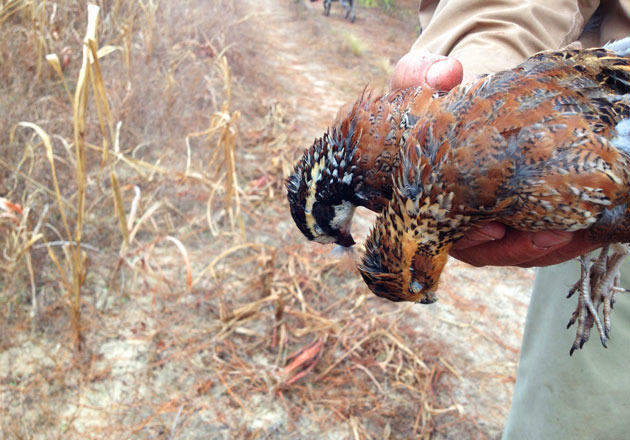A sienna-colored landscape punctuated randomly by longleaf pine rises then falls into briar-protected hardwood quail coverts that border bottomlands where blackwater creeks bisect small fields. Clear ponds, some several acres in size, fill low-lying areas of the rolling terrain, hinting at the possibility of lunker bass lurking among the lilly pads, stumps, and blowdowns. Above the invisible bass, paddling ducks create V-shaped ripples, disturbing the dark, otherwise glass-like waters.
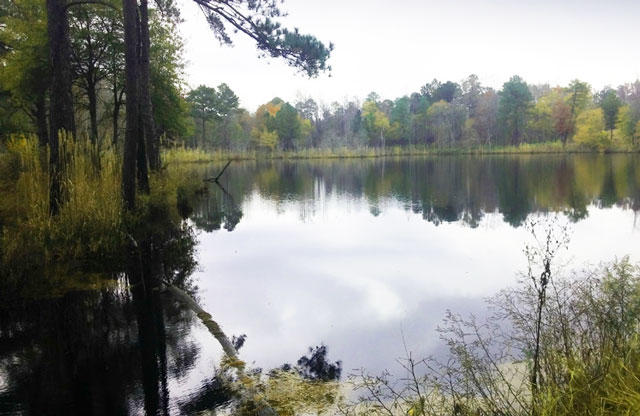
Spring can’t get here soon enough. Somewhere out there is the largemouth of my dreams, a 10 pounder that has eluded me for 66 years.
Millet, soybeans, beggar lice, and coffeeweed grow sporadically in the fields, providing food for bobwhites and bathing the late autumn landscape in earth tones such as those you’d see in a Bob Timberlake painting. It is a serene place, a comfortable place, this Webb Farm.
An explosion five yards from my feet ends the quiet, and a covey of forty-something bobwhites thunder skyward from the ground, some all at once, some one at the time. Handsome, highly-conditioned dogs break point as the covey erupts.
My 1927 Parker 16-gauge adds to the crescendo. Against the dark of the hardwoods, a magnificent, noble, revered little brown-and-white bird folds and falls from the sky in time-honored tradition. His feathers float on the still air. This is our 15th covey of a day that I will not soon forget.
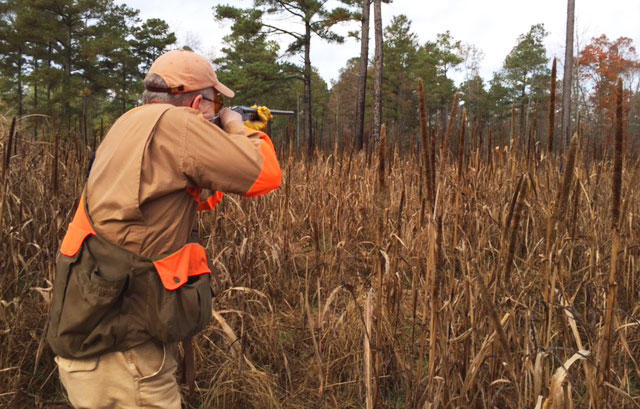
Over some millet, Sporting Classics advertising manager Brian Raley takes aim at a bob with my old Parker. Yep, he got his first Parker-killed quail!
Quail hunting in the South still exists. Perhaps it is more modern, more technical, the wild birds supplemented by the nearly wild, but here, as much as any place I’ve been in a long time, southern quail hunting still exists, still thrives in its finest form. Comfortable ATVs have replaced mules and wagons. Dogs have beepers and electronic collars. Gentlemen guides such as Wade Meacham have college degrees and are experts at their craft. Or is it art? The food is prepared by a real chef, with a penchant for the way your grandmother cooked. The accommodations are incredibly comfortable without being stuffy or over done. Subtle elegance reigns.
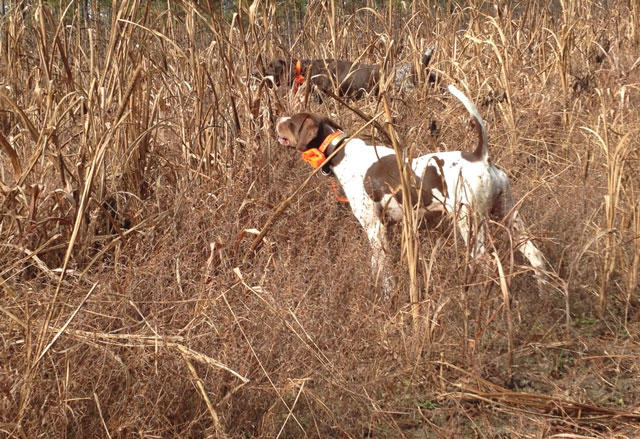
The secret? DNA. The Webb Farm began a hundred years ago. That’s when proprietor Bill Webb’s ancestors moved here from Ireland. His grandfather and uncles hunted, fished, and farmed this very land. This place is part of his family, part of him. He has skin in the game, and it shows in the detail and the care that he gives it. Best of all, he wants you to appreciate it, to enjoy it the way he does. www.thewebbfarm.com
The Webb Farm was too much fun, so I’m not waiting for next season. Come spring, I intend to head back up to Ellerbe, North Carolina, the Parker stored, armed instead with a bait cast rod and some topwater plugs. No, I’m not going to use any of that old black woven, hard-to-cast nylon line. But I am wondering just where I left my wooden Jitterbugs?
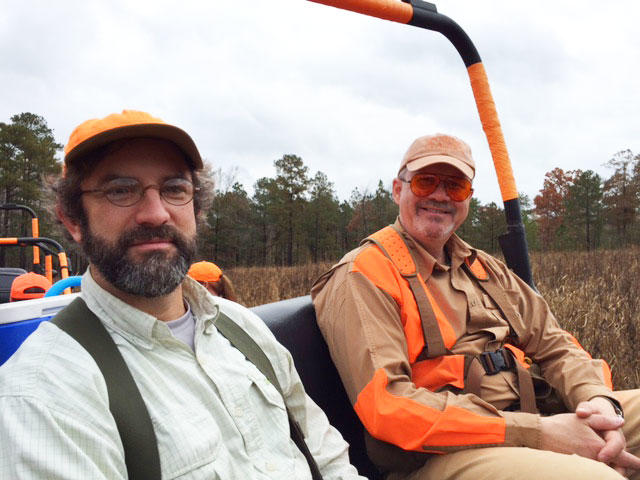
Editor Russ Lumpkin and ad manager Brian Raley. Covey after covey, and wonderful dogs will make anyone who speaks with a bit of drawl and smelling of gun oil break into a smile.
+++
Be sure to sign up for our daily newsletter to get the latest from Sporting Classics straight to your inbox.

